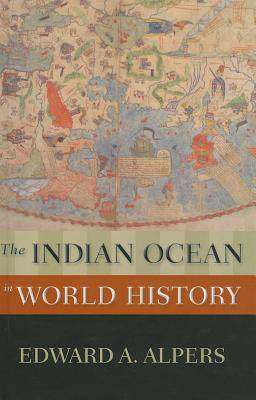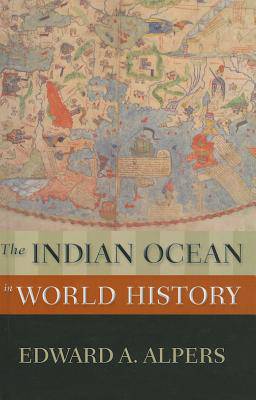
- Afhalen na 1 uur in een winkel met voorraad
- Gratis thuislevering in België vanaf € 30
- Ruim aanbod met 7 miljoen producten
- Afhalen na 1 uur in een winkel met voorraad
- Gratis thuislevering in België vanaf € 30
- Ruim aanbod met 7 miljoen producten
Zoeken
The Indian Ocean in World History
Edward A. (Professor of History, Professor of History, UCLA) Alp
€ 159,95
+ 319 punten
Omschrijving
The Indian Ocean in World History explores the cultural exchanges that took place in this region from ancient to modern times.
Specificaties
Betrokkenen
- Auteur(s):
- Uitgeverij:
Inhoud
- Aantal bladzijden:
- 184
- Reeks:
Eigenschappen
- Productcode (EAN):
- 9780195165937
- Verschijningsdatum:
- 16/01/2014
- Uitvoering:
- Hardcover
- Afmetingen:
- 239 mm x 160 mm
- Gewicht:
- 363 g

Alleen bij Standaard Boekhandel
+ 319 punten op je klantenkaart van Standaard Boekhandel
Beoordelingen
We publiceren alleen reviews die voldoen aan de voorwaarden voor reviews. Bekijk onze voorwaarden voor reviews.







